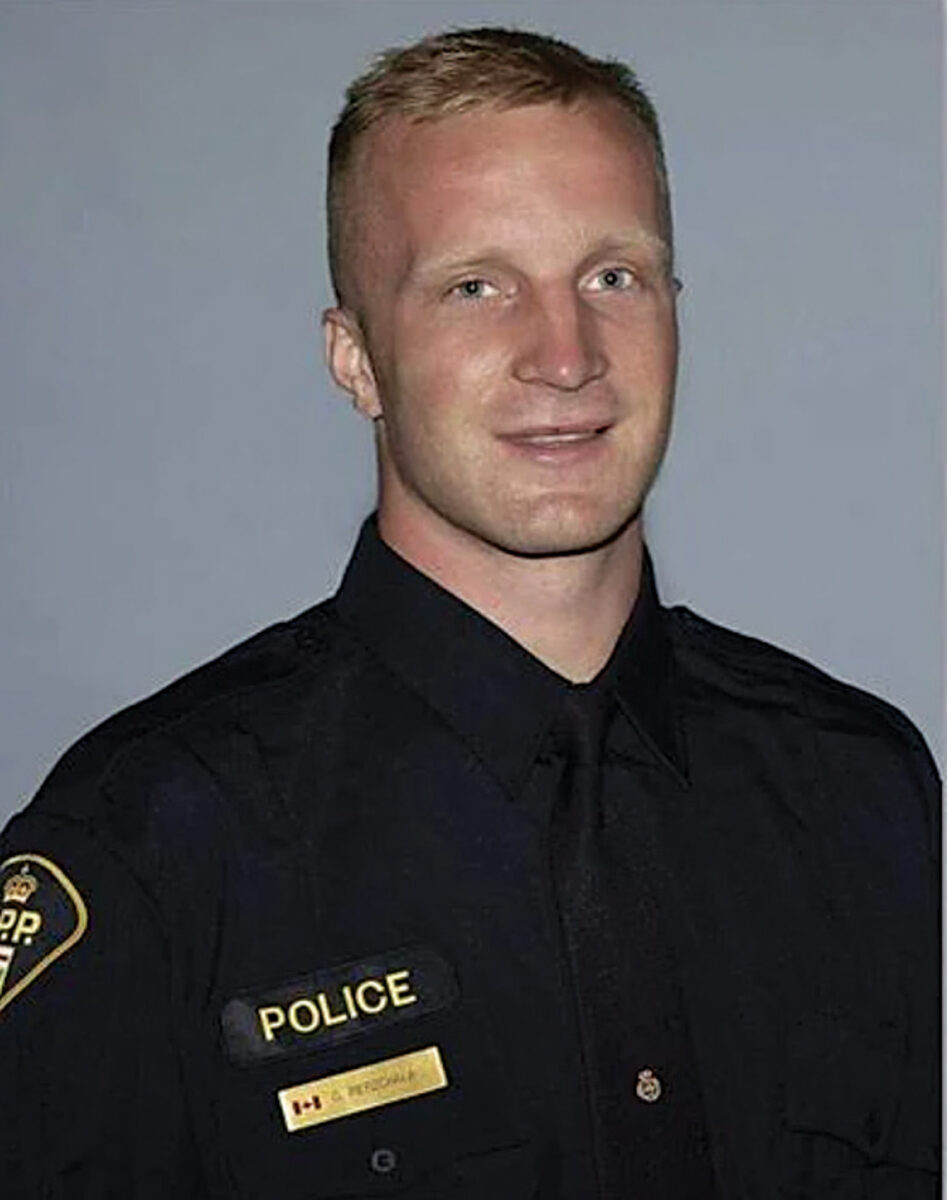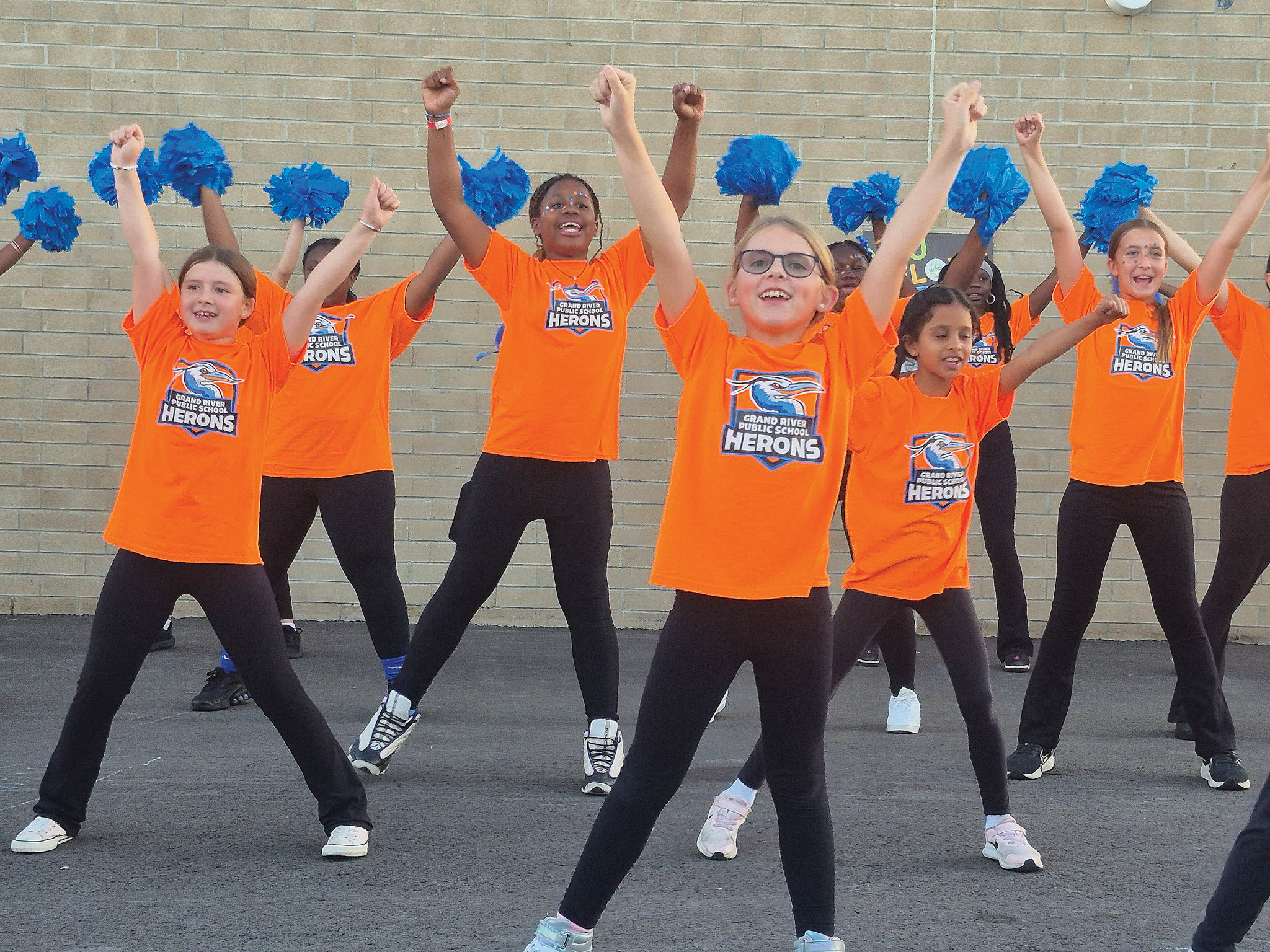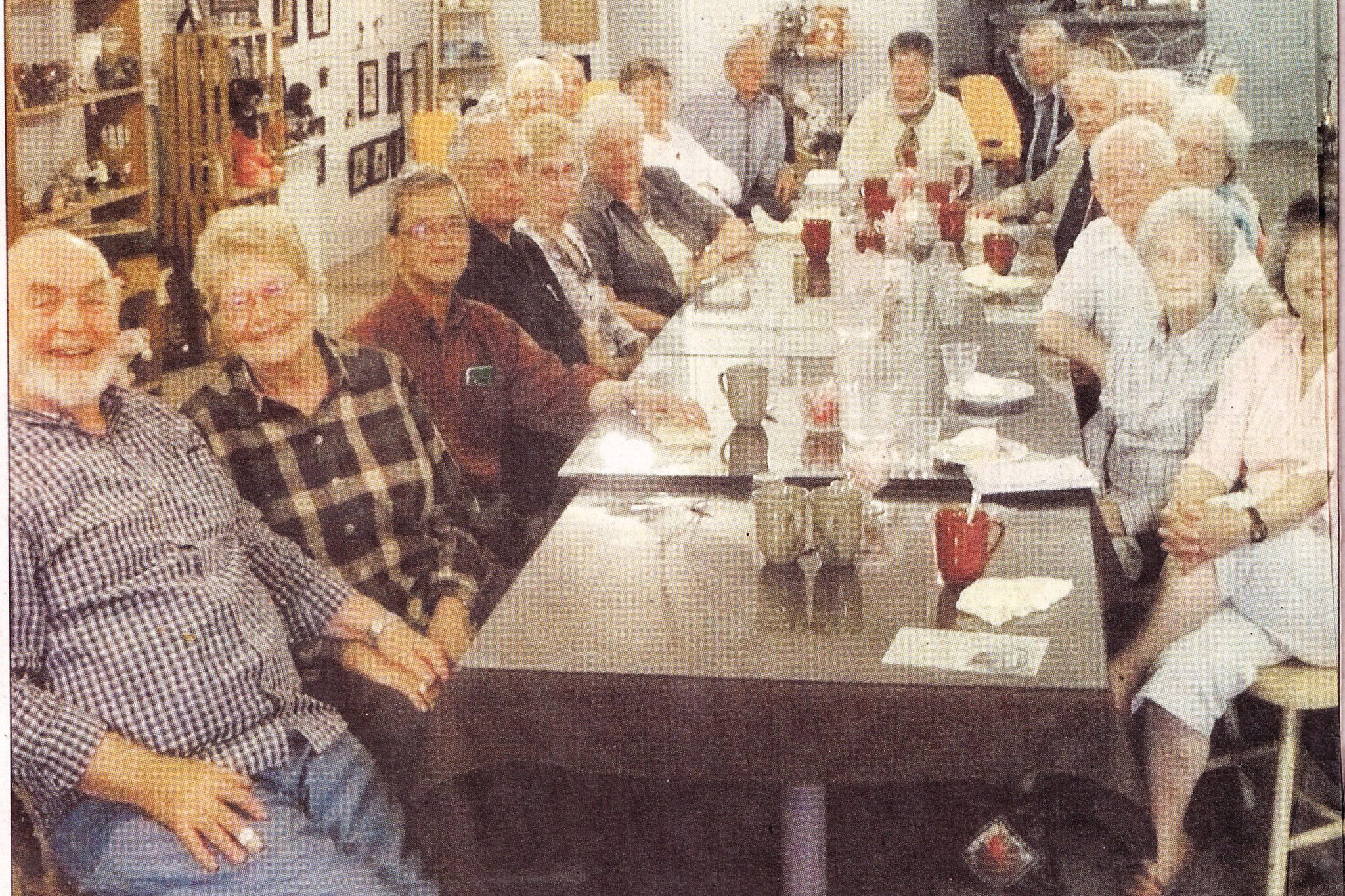CAYUGA—Randall McKenzie and Brandi Stewart-Sperry have both been found guilty by a jury of their peers in the first-degree murder of Haldimand OPP Constable Greg Pierzchala. The pair face life sentences with no opportunity of parole for 25 years.
With the shooting taking place on December 27, 2022 and the verdict delivered April 24, 2025, it’s been a long journey to justice for Pierzchala’s family.
The verdicts follow an exhaustive, detail-heavy case laid out by Crown Attorney Fraser McCracken and his team that sought to prove McKenzie, aided by Stewart-Sperry, was the shooter seen firing six shots at Pierzchala on his body cam footage.
The trial began with a series of witness testimonies, including Veronica Tobicoe and her daughter Tomasina Hill, who were standing mere feet away from McKenzie as he fired his concealed weapon, and Paul Reichenbach, who encountered the fleeing couple escaping the scene in a Silverado – stolen from Tobicoe – and tried to ram them off the road before giving chase.
A series of CCTV cameras captured the stolen Silverado as it raced to its final stop at McKenzie’s brother Richard’s property on Mississauga Road, with a surveillance camera on the property documenting McKenzie and Stewart-Sperry exiting the vehicle.

Richard and members of his family testified to encountering the accused that day, and the pair ultimately fled into the brush behind the property where they were later arrested.
A range of experts, detectives, and officers who were part of the arrest revealed how they tracked the Silverado using On-Star and swarmed the property using drones, helicopters, and the joint efforts of the OPP and Six Nations Police on the ground to make the arrests.
Forensic evidence, including matching fingerprints on the murder weapon, further solidified the case.
In his closing remarks, McCracken reviewed the details, from the broken front tooth seen in both the video of the shooter and photos of McKenzie, to the gunshot residue and hole in the pocket of McKenzie’s sweater when arrested, to the messages on McKenzie’s phone that spoke of “shooting it out with cops.”
“The only explanation is that Randall McKenzie is the shooter,” said McCracken. “Randall McKenzie shot Greg Pierzchala and killed him.”
As for Stewart-Sperry, McCracken argued that the moment when she steps between Pierzchala and McKenzie in the body cam footage, she is deliberately concealing McKenzie to aid an ambush. He argued that, as a couple, she knew McKenzie had a gun and their actions that day were a joint effort.
He asserted the pair knew that “if the police came to the scene, they were going to get arrested,” leaving them with two options: surrendering or eliminating Pierzchala.
Defence Counsel for McKenzie, Douglas Holt, tried unsuccessfully to argue that inconsistencies with the testimony of some witnesses related to the positioning of McKenzie’s face tattoos and a characterization of the shooter’s teeth as “yellow and rotten” presented the possibility that the shooter in the video was an unknown person.
He noted that the stolen Silverado had made a stop on its journey back to the Mississauga Road residence, where it was possible that, off-camera, McKenzie and the alleged real shooter could have changed places. He also noted that only one shell casing was found on Indian Line, despite the shooter firing six shots.
Defence Counsel for Stewart-Sperry, Scott Reid, argued in his closing comments that the case against his client was built on speculation, not fact.
He asserted that McKenzie used his girlfriend as a shield to block Pierzchala’s view, noting that as she is seen on video looking at Pierzchala, she could have been unaware of what McKenzie was doing behind her.
“It’s outrageous when you think about it. It’s a no-win situation,” said Reid on his client’s options in that moment.
He also argued that the mixture of drugs found in her blood that day would likely have affected her reactions, as she had been described as “confused and uncoordinated” at the scene.
Following the closing arguments and a lengthy set of instructions given to the 12 remaining members of the jury (two were excused through a random selection process prior to deliberation), the jury deliberations began on Thursday afternoon.
It was just after 9 p.m. that evening that court reconvened to hear the verdicts.
Sentencing took place immediately following the verdicts, with McCracken advising the justice that Pierzchala’s family were not going to be submitting victim impact statements given the guilty verdicts, but they reserved the right to do so at a later time.
Goodman offered McKenzie a chance to speak following the verdict. After some words spoken in his native language, he addressed Pierzchala’s family.
“I honestly am so sorry. What happened, honestly, wasn’t, that should never happen to nobody. I don’t know what to say,” he said.
Stewart-Sperry said nothing.
“Your actions here were callous, cold-blooded, and an assassination of an officer in the prime of his life just starting out in his career,” said Goodman directly to McKenzie. “There is no excuse whatsoever for your actions in this regard. With your background here, I am content that the parole board deal with your matter in 25 years. Whether you get out after that will be up to the parole board, and we’ll leave it to them.”
To Stewart-Sperry, Goodman said, “Your participation as aider and abettor in this case has also resulted in you receiving the maximum sentence of first-degree murder. Your actions, as well, are additionally cold-blooded and callous.”
Both will serve a mandatory sentence with no eligibility of parole for 25 years, or December 2047.
Goodman also spoke directly to Pierzchala’s family, concluding the trial, “I am sorry for your loss. I know that many of you have been here throughout the trial. I share in your grief. Hopefully this will provide some measure of closure for you. I know that he will never be forgotten, but at least this part is over.”





